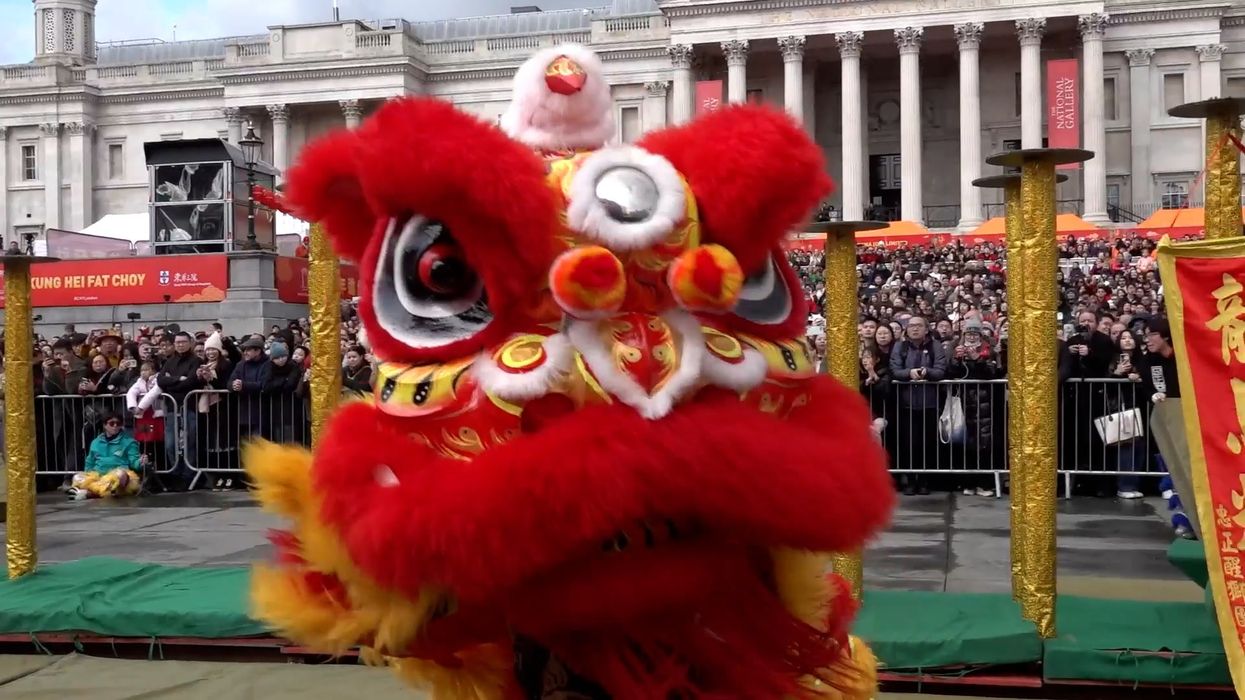Harriet Brewis
Feb 15, 2024
London brings in Year of the Dragon with Chinese New Year celebrations
PA
I don’t remember much of my early childhood in Singapore.
The sticky heat, running around with no shoes on, and the earthy smell of my dad when he returned home from work are among the only memories I’ve retained.
Yet, one look at a red envelope and I’m transported back to bustling night markets, the warm glow of lanterns, and a little tree sitting, pride of place, in our flat.
This was no star-topped pine, but a collection of pussy willow branches decorated with tiny jade teapots, whiskered fish, and “lucky” square-holed coins.
“Gōng xǐ fā cái!” my siblings and I would shout excitedly at one another – me in my tiny red qípáo (a standing-collared silk dress) brandishing an ornate paper fan and working it with all the grace you’d expect from a toddler.
And the best part? Being handed a thin hóngbāo (the aforementioned red envelope) and finding a couple of crisp dollars inside.
It was every bit as good as a stocking. But Chinese New Year wasn’t just as good as Christmas… it was better.
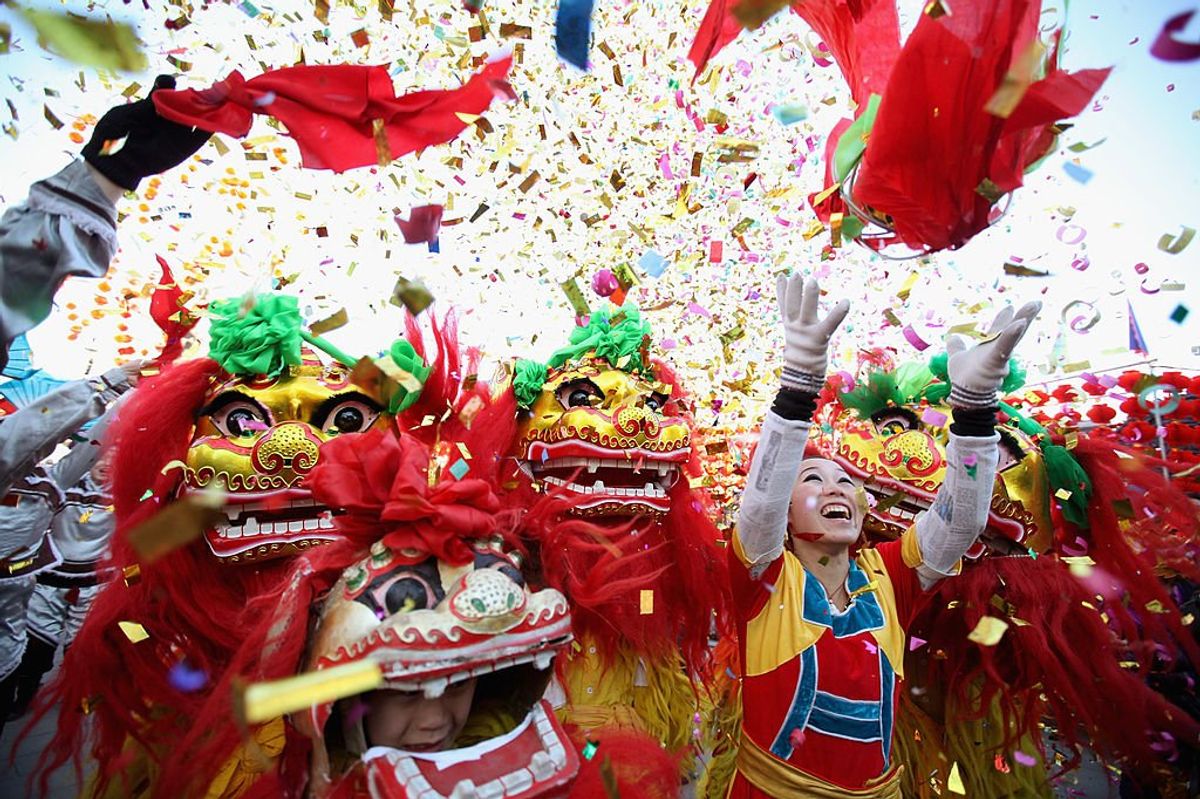
Yes, I was only three years old, but even then I felt that there was something special about this colourful 16-day festival.
For starters, each lunar year is different: represented by its own Zodiac animal, whose character guides the course of the succeeding months.
We have just entered the year of the Wood Dragon, which is considered particularly auspicious thanks to the mythical animal’s associations with prosperity and power. In other words, 2024 is pre-ordained to be a pretty good year for most.
The point is, Chinese New Year feels fresh and exciting every year because it is: each one has its own unique character; its own unique flavour.
Speaking of flavour, the food is yet another reason why this festival is such a cause for celebration.
You can keep your mince pies and stuffing balls – I’d much rather stuff my face with dumplings sweet, sticky rice cakes and steamed fish.
And so, last week. my mother and I feasted on these delicacies prepared by a top Singaporean chef at London’s Mei Ume restaurant.
Neither of us had properly celebrated the holiday together since we moved to the UK some 30 years ago, so it felt like a fitting way to ring in the lunar new year.
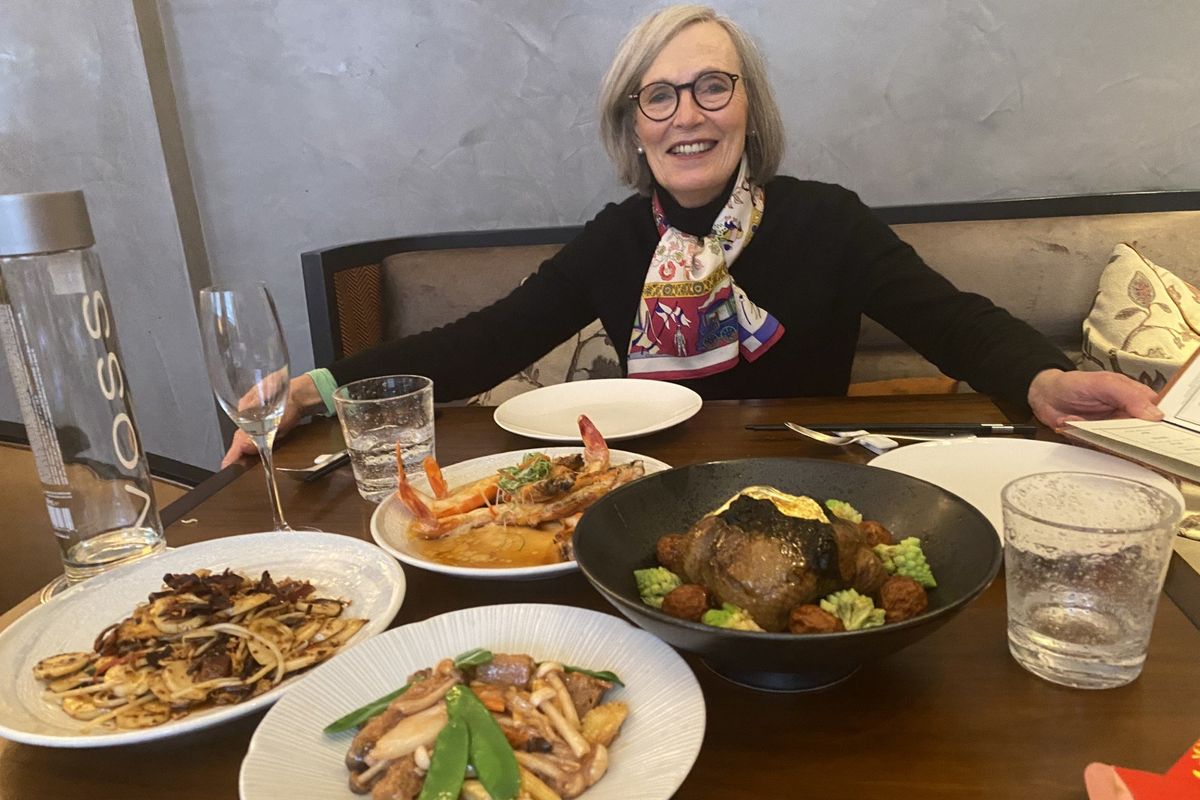
Just one taste of the first dish and my mum found herself back in 1993, trying to keep her four kids in order as we gorged ourselves on fried, steamed and roasted treats laid out on paper tablecloths.
This culinary time machine was a yu sheng, known in English as a prosperity salad, consisting of a mountain of rice noodles surrounded by vibrant hills of raw salmon, jellyfish, crispy wanton skin and pomelo, to name but five of the 14 ingredients.
“I haven’t had this since Singapore!” my mum told Chef Peter Ho, who was friendly enough to visit our table, explaining that she’d never seen it in any Chinese restaurants over here.
“That’s because the ingredients are much harder to get hold of,” he told her. “Or you have to make them from scratch, and that takes a long time. A really long time.”
The idea with the salad is to mix it by tossing all the ingredients as high as possible into the air using a pair of chopsticks. Each member of your party gets a go, and the higher you toss it, the more luck you’ll have over the coming year.
Suffice it to say, my mum and I aren’t going to win the lottery any time soon.
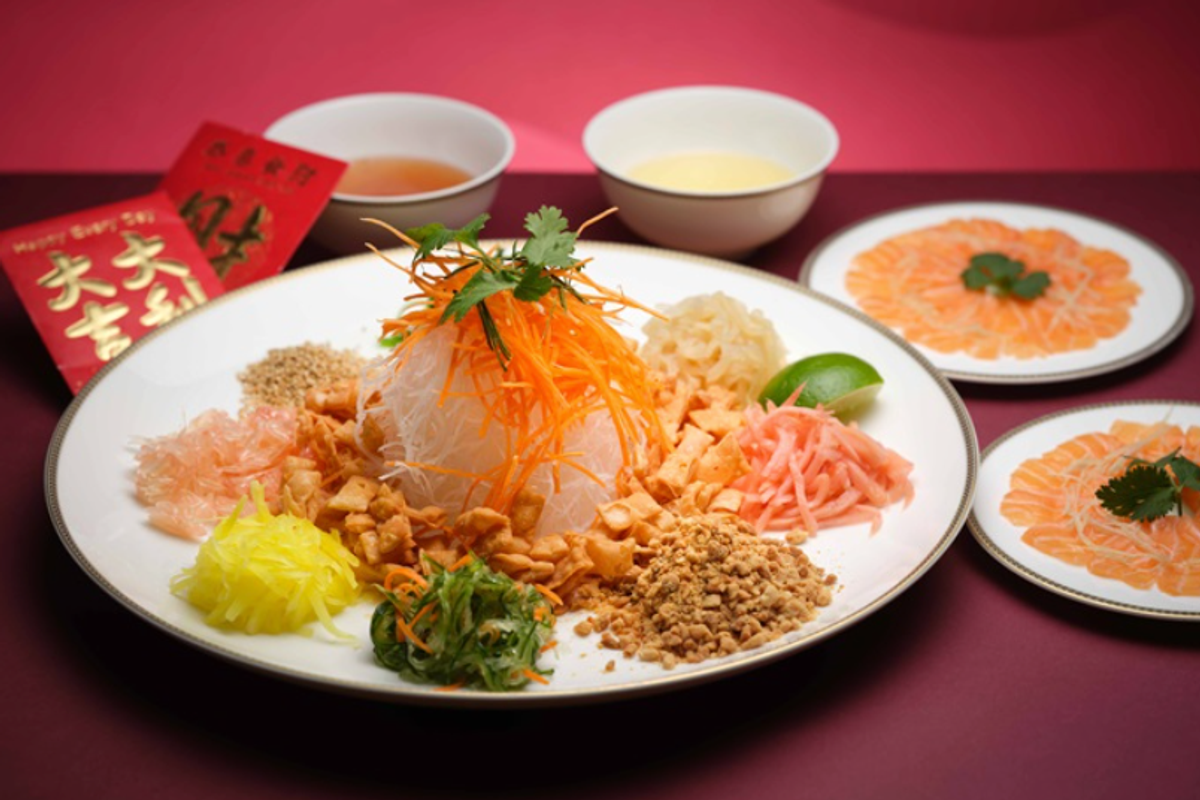
The time, care and dedication that went into this dish was carried over into the eight courses that followed: a bbq platter of pork belly, pigeon and honey-glazed octopus, chicken soup dumpling, and stemmed jumbo prawn on a silken egg bed, to name but a few.
Chef Ho was particularly proud of his “eight treasures duck”, slow-cooked with chestnuts, pork, lotus seeds and lily bulbs and topped with black moss and gold leaf.
“It’s an ancient recipe,” he told us. “I don’t know anyone else who cooks it like this, even in the restaurant I’m the only person who really knows how to do it.”
He explained that his father, a fellow chef, had taught him these complex traditions: keeping history and culture alive through food and family.
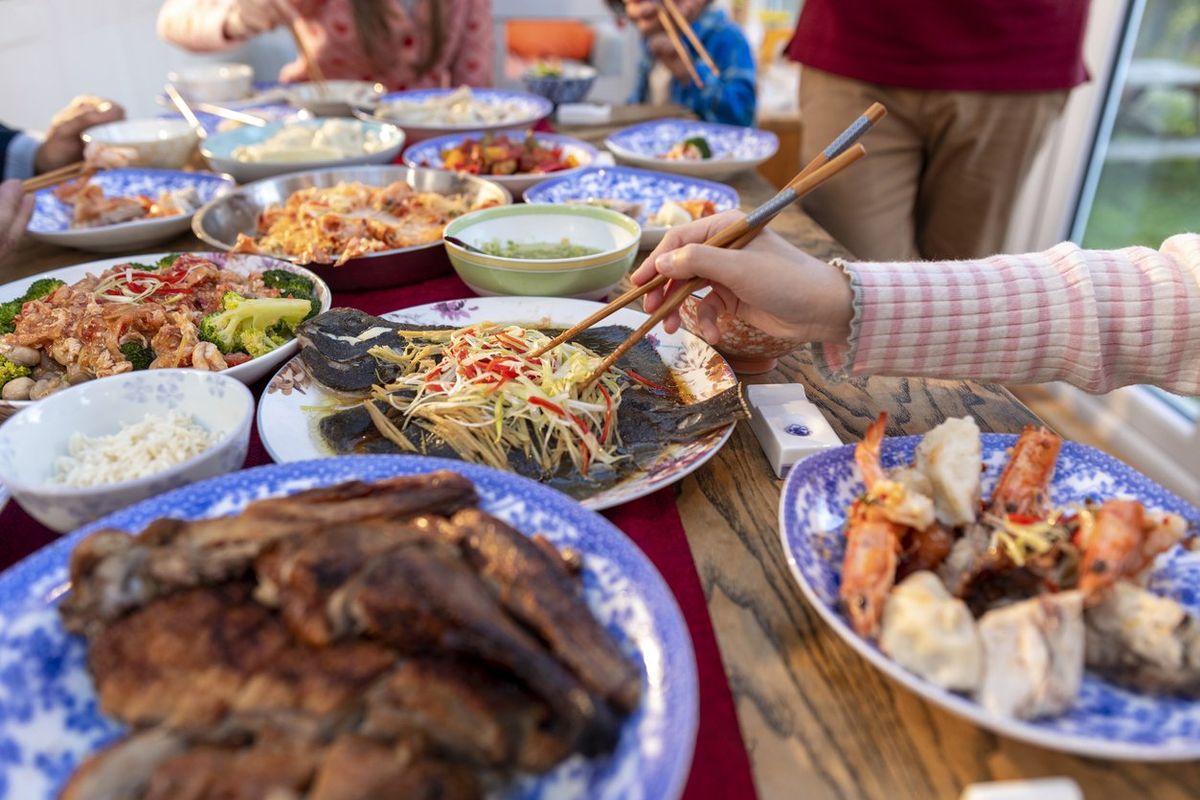
And that’s ultimately what Chinese New Year is about: bringing loved ones together and honouring the past while looking ahead to the future.
And whilst I can understand why some people might accuse me of cultural appropriation for marking the festivities, I’d like to point out that I moved to Southeast Asia when I was four months old. These traditions are part of my own history.
Now, as I look forward to 2024 and beyond, I plan to keep those memories alive. And make some new ones, too.
Sign up for our free Indy100 weekly newsletter
Have your say in our news democracy. Click the upvote icon at the top of the page to help raise this article through the indy100 rankings
Top 100
The Conversation (0)
